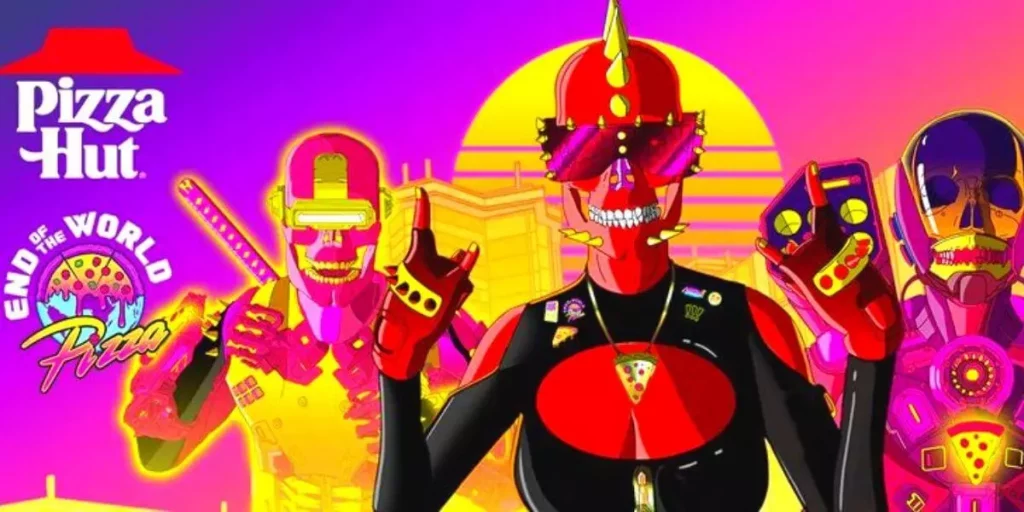Restaurants and fast food chains continue to try their luck in the metaverse. This time it was Pizza Hut that developed a strategy to approach its potential customers in a virtual universe, but with one thing in mind: that the digital experience could become something tangible in the physical world.
Can pizza change the world? Join us at #Complexland with @TheEndisPie 5/25-5/27 to find out. pic.twitter.com/Srd2bgm0qS
— Pizza Hut (@pizzahut) May 24, 2022
The chain participated in ComplexLand, a virtual shopping experience (sort of like a digital bazaar) that took place May 25-27 in the metaverse.
Pizza Hut, owned by Yum Brands, designed customizable vehicles, various pizza delivery avatars and nine different NFT’s with cyberpunk culture motifs.
#ComplexLand is happening right now. Enter for a chance to win one of 9 exclusive #NFTs and free @pizzahut pizza for an entire year! #NFTgiveaway #pizzahutpartner https://t.co/OoH5JAOcgF pic.twitter.com/egXlJM2vbm
— 💀End of the World Pizza Now Minting🍕 (@TheEndisPie) May 25, 2022
In the digital universe, users could order a virtual pizza from the delivery drivers and earn one of nine NFT’s that would give them the right to order pizza for a year at no cost in the real world.
Jimmy John’s, the U.S. sandwich chain, opened a virtual branch in the Decentraland metaverse where it is possible to create a meta-sandwich that the user can pick up at a real-world branch and even become part of the chain’s menu if they find it tasty enough.
Many Metasandwiches were submitted. But only 4 remain. Vote for the #Metasandwich you want to eat with your real mouth 👉 https://t.co/NeMdC0kqLu
No Purc Nec. 50 US & DC, 18+. Rules: https://t.co/8po6KqdgcR pic.twitter.com/Cpi5yJgrtU
— Jimmy John’s (@jimmyjohns) May 24, 2022
In addition, when making Jimmy John’s Metasandwiches, users can add “secret ingredients” such as cookies without gawking at other diners.
The Decentraland restaurant has exclusive promo codes and access to Jimmy John’s merchandise.
Little by little, brands are realizing something that makes sense: for digital marketing strategies in the metaverse to work, it is essential that they have a link in the real world.
Sure, there’s a charm to digital tokens and being able to create eye-catching elements in a digital environment, but nothing compares to the experience of taking a bite of a delicious, freshly baked pizza.
Recent metaverse activations in the restaurant category have been very popular. In March, Wendy’s launched a “Wendyverse” initiative in which consumers could explore a virtual restaurant in Horizon Worlds, Meta’s proprietary virtual reality platform. It reached 52 million users, according to Meta executives.
